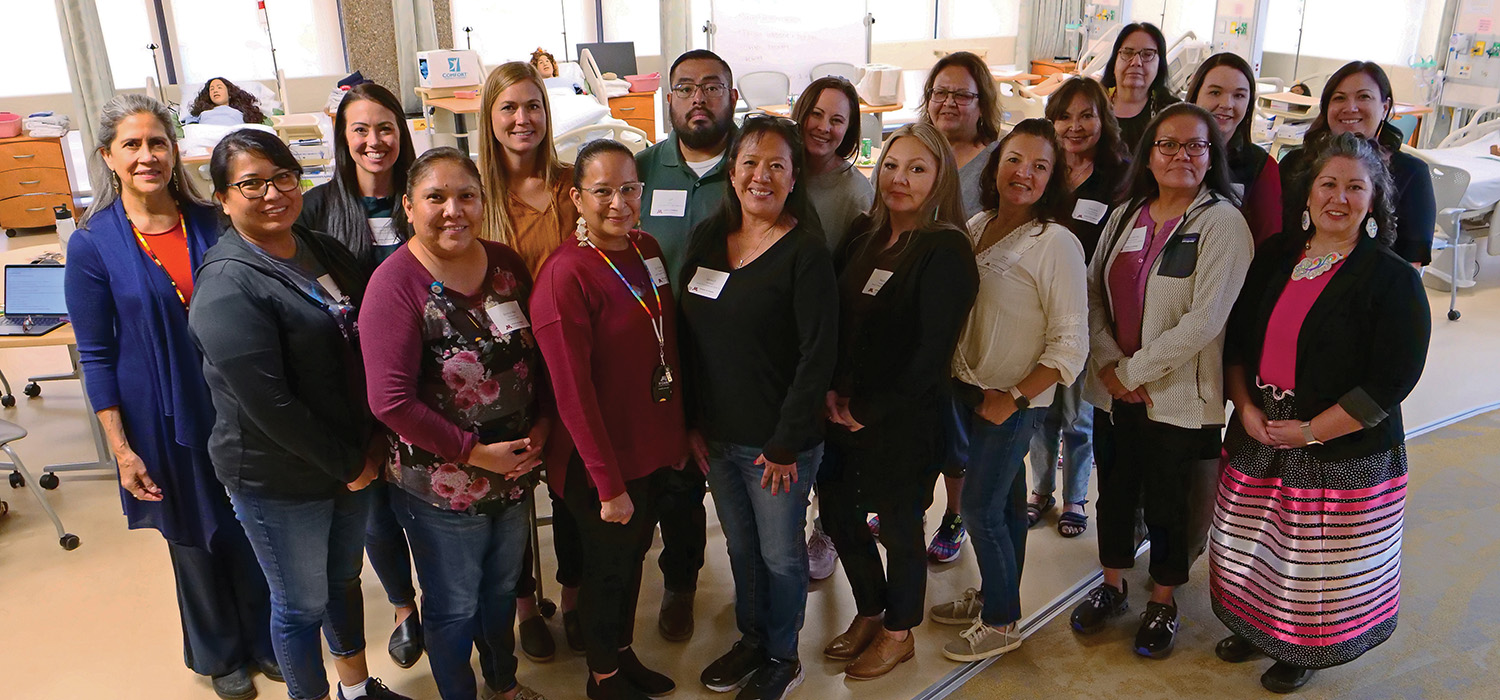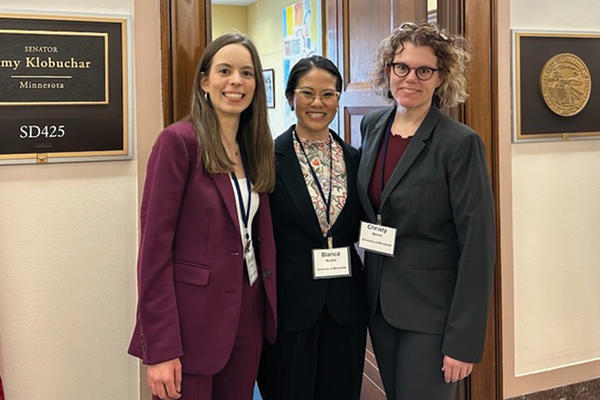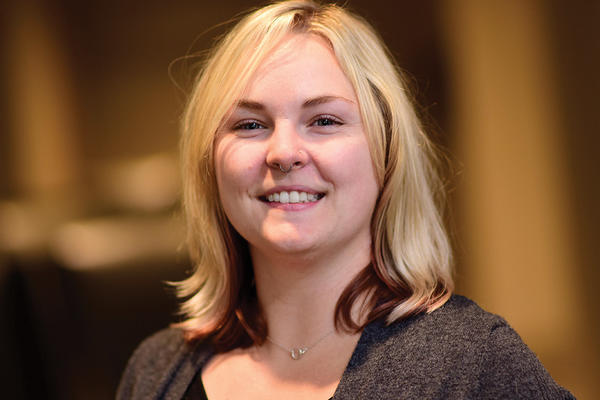With a pathway, 16 American Indian nurses join DNP program
Indigenous enrollment in DNP program leads the nation
November 14, 2023
Brett Stursa

Students in the American Indian/Alaska Native Pathway program met with mentors Misty Wilkie, Margaret Moss and Lisa Martin at the beginning of the semester.
This fall, the University of Minnesota School of Nursing enrolled the largest number of American Indian/Alaska Native (AI/AN) students in a Doctor of Nursing Practice program ever. Fourteen new AI/AN students joined two previously enrolled students, for a total of 16 AI/AN students.
The achievement is due in large part to the nursing workforce grant Pathway to Graduate Nursing Degree for American Indian/Alaska Native Nurses that the school was award by the Health Resources and Services Administration (HRSA).
“Indigenous nurses have been waiting for an opportunity like this,” says Misty Wilkie, PhD, RN, FAAN, a citizen of the Turtle Mountain Band of Chippewa Indians and director of the AI/AN Pathway program at the school. She confirmed with the American Association of Colleges of Nursing that the University of Minnesota has the largest number of AI/AN students in a DNP program.
While there are schools that offer scholarships and assistance at the undergraduate level for AI/AN students, few have focused on the doctoral level. “I think there are many, many Indigenous nurses with baccalaureate degrees that have been wanting to go back to school but they don’t have the financial means to pursue a graduate degree,” says Wilkie.
The HRSA grant allows the school to offer financial assistance, while also offering mentoring from AI/AN faculty, peer support and community building.
“Our communities will become healthier if we have more health care providers that look like our communities,” says Wilkie. “What we want is for these doctorally prepared nurses to go out into their communities and take care of their relatives. We know that the Tribal communities will become healthier because of that.”
With only 49 AI/AN students graduating with a DNP degree nationwide in 2022, Wilkie sees the profound impact the Pathway program will have on the number of doctorally prepared Indigenous nurses and, in turn, on the health of Tribal communities.
Creating spaces for Indigenous students
The grant also supported assistance in the application process. Jillian Rowan, MA, Lac Courte Oreilles Band of Ojibwe, Pathway recruiter and adviser, says as more Indigenous nurses learned about the flexibility of the program and the potential for financial assistance, there was significant interest in the program.
“Nurses have been looking for something like this, but either financially it’s been a burden or relocating isn’t something they can do,” she says.
Wilkie and Rowan walked applicants through the process and connected them with the right people to answer questions. After they were accepted into the program and enrolled, the group of incoming AI/AN students met every other week over Zoom with Wilkie and Rowan. A key piece of the pathway program is building community.
“We really encourage community building so they have people they can connect with and reach out to when they need it,” says Wilkie. The two returning students joined some of the calls and provided insights on their experiences for another layer of peer support.
“One of the biggest challenges for underrepresented students is not having anyone in the program that looks like them,” says Wilkie. “That’s why I am ecstatic that there is such a large cohort, so that they’re not going to feel like the only one. That’s always been my goal – to create spaces for Indigenous students to have others that look like them so they never feel alone.”
The new students live in states across the country, with many living in the southwest. Their Tribal affiliations are White Earth Band of Ojibwe, Navajo Nation, Oglala Sioux, San Carlos Apache, Turtle Mountain Band of Ojibwe, Blackfeet Nation, Cheyenne River Sioux, Muscogee Creek Nation and Fond Du Lac.
The students are enrolled in a variety of specialties, although half of them are enrolled in the health innovation and leadership specialty. For a specialty with a total of 15 students, the experience will be a pilot of what’s to come in the future. “These students are going to be transformed by this specialty and I also think that the specialty is going to be transformed by these students,” says Wilkie. Other specialties include integrative health and healing, family nurse practitioner and psychiatric mental health.
There will also be opportunities for AI/AN nursing students to connect with AI/AN students in other health sciences programs, like medicine, pharmacy and dentistry. “Last year we planned an event with Indigenous health sciences students across University campuses and they loved it so we’ll plan on that again,” says Wilkie.
Just the beginning
Wilkie says she expects this to be just the beginning. “I think our numbers will keep growing,” says Wilkie. With one year left of the grant, they’ve already surpassed the grant’s recruitment goals. Regardless, next year Wilkie would like to match the number of AI/AN students admitted this year. She also would like to support the enrollment of AI/AN students in the PhD program, to ensure representation in research and nursing faculty.
“The bottom line is to help our relatives in Native communities have healthier outcomes,” says Wilkie.


